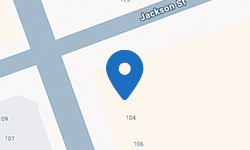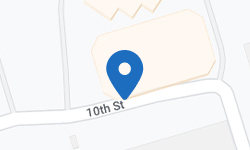Do Nassau County Police Wear Bodycams? What It Means for Your Criminal Case
If you or a loved one has recently been arrested in Nassau County, you are likely facing a storm of questions. One of the most important new factors in any criminal defense case is video evidence. This leads to a critical question: Do Nassau County Police Department (NCPD) officers wear body cameras?
The short answer is yes.
After years of debate and planning, the Nassau County Police Department completed its rollout of body-worn cameras (BWCs) to all patrol officers. This move, part of a statewide police reform initiative, fundamentally changes the landscape of criminal defense on Long Island.
But what does this actually mean for your case? It means there is a high probability that your interaction with the police—from the initial traffic stop to the arrest itself—was recorded. At Hochhauser Criminal and DWI Defense, we know this recording is now one of the single most important pieces of evidence. It can either be your best defense or the prosecution’s strongest weapon.
🔎 The “Objective” Witness: How Our Firm Uses Bodycam Footage
A body camera is often called an “objective witness,” but the footage it captures is rarely simple. An experienced criminal defense attorney like Richard Hochhauser knows how to analyze this footage for details the prosecution might overlook or ignore.
How Bodycam Footage Can Help Your Defense:
- Disproving the “Official Story”: A police report is a summary written by the officer after the fact. We frequently find major discrepancies between what the officer wrote and what the video shows.
- Exposing Constitutional Violations: The video is our best tool for spotting police misconduct. We scrutinize the footage to answer key questions:
- Illegal Search: Did the officer have a legal reason (probable cause) to search your person or vehicle? This is critical in drug crimes cases. The video can show if you gave consent or if the officer overstepped their bounds.
- Unlawful Stop: Did the officer have a valid reason (reasonable suspicion) to pull you over? In a DWI case, the BWC might capture the very traffic violation—or lack thereof—that led to the stop.
- Miranda Rights: Were you read your Miranda warnings before a custodial interrogation? If police questioned you in custody without reading your rights, the video can prove it, and your statements may be suppressed.
- Proving Your Innocence: The camera can definitively show that you did not do what you are accused of. It can show you were calm and cooperative when the officer claimed you were “aggressive,” or that you did not possess the contraband the officer claims to have found on you.
How the Prosecution Will Try to Use It Against You:
Of course, the District Attorney’s office will use the same footage to try and prove its case. The video may clearly show the alleged offense or capture incriminating statements. This is precisely why you cannot assume the video “speaks for itself” and why having an aggressive defense team on your side is non-negotiable.
📽️ What the Camera Doesn’t See
It’s just as important to understand a body camera’s limitations. The footage can be misleading, and our firm knows how to point this out.
- Limited Point of View: The camera is typically on the officer’s chest. It shows what’s in front of them, but not what’s happening to their sides, behind them, or what they are doing with their hands.
- Missing Context: The camera may only be turned on after an incident has started, missing the crucial context of what led to the confrontation.
- Missing Audio: Officers are required to “buffer” video, but audio often only starts recording when the officer activates the camera. The first 30-60 seconds of video may have no sound, leaving out key parts of your conversation.
- “Missing” Footage: What if the officer “forgot” to turn the camera on? Or what if it was “accidentally” turned off? This isn’t just an inconvenience; it can be a significant legal issue that we can raise in court.
🛡️ How We Use Bodycam Evidence to Defend You
When you hire Hochhauser Criminal and DWI Defense, one of our very first actions is to file a formal discovery demand. We specifically request all body-worn camera footage related to your case. We don’t just accept the one or two clips the prosecutor sends over; we fight for everything.
Our process includes:
- Detailed Analysis: We watch every second of the footage, comparing it frame-by-frame against the police reports and the charges against you.
- Identifying Discrepancies: We pinpoint every inconsistency between the officer’s written report and the video. This becomes powerful leverage.
- Building a Strategy:
- Negotiation: We present this evidence to the prosecutor to demonstrate the weaknesses in their case, often leading to a reduction in charges or a full dismissal.
- Suppression Motions: If the video shows your rights were violated, we will file a motion to have the evidence thrown out of court.
- Trial: If your case goes to trial, we will use the video to cross-examine the officer and show the jury what really happened.
Don’t Wait: The Video Evidence in Your Case Is Critical
The existence of bodycam footage in Nassau County has changed the rules of the game. It is no longer just your word against the officer’s.
If you have been arrested, you need an attorney who is experienced in obtaining and dissecting this digital evidence. The footage exists, and it will be used. The only question is whether it will be used to build your defense or to convict you.
Call Richard Hochhauser today at (516) 939-1529 or fill out our online contact form for a free, confidential consultation. We will review the facts of your case and immediately begin the process of securing the evidence you need to protect your rights.










